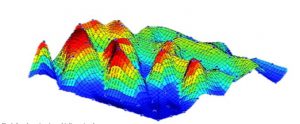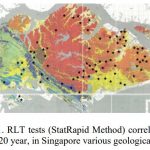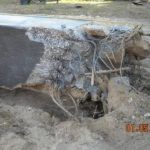Validated Signal Matching to analyze HSDT data
Titel |
Validated signal matching to analyze HSDT data |
 SW2022 – Validated signal matching to analyze HSDT data |
Author(s) |
Verbeek, G.E.H.; Bielefeld, M.W.; Moscoso, N. |
|
Year |
2022 |
|
Language |
English |
|
Where |
11th Int Stress Wave Conference, Rotterdam, The Netherlands |
|
Cite as |
Verbeek, G.E.H., Bielefeld, M.W., & Moscoso, N. (2022, September 20). Validated signal matching to analyze HSDT data. 11th International Conference on Stress Wave Theory and Design and Testing Methods for Deep Foundations (SW2022), Rotterdam, The Netherlands. https://doi.org/10.5281/zenodo.7148219 |
ABSTRACT:
The standard analysis method for High Strain Dynamic Testing (HSDT, commonly known as Dynamic Load Testing) data is Signal Matching. Signal Matching is a procedure, in which a dynamic soil model and a dynamic pile model are combined with the recorded signals, resulting in a simulated soil response in the form of the upward travelling wave. The simulated
upward traveling wave is then compared with the upward travelling wave calculated from the measured strain and acceleration signals. By adjusting the soil model, the match between the simulated and calculated (measured) response is improved, until a high degree of correlation is achieved. The resulting soil model is assumed to give an accurate representation of the soil strata along the pile shaft. Subsequently, this soil model is used to calculate or simulate the static pile behavior (mobilized capacity and load-settlement diagram). The limitation of this method is that there is no unique combination of soil and pile model that will generate a (very) good match, which means that the outcome depends on the person performing the match. By performing the match and then validating the results the reliability of the signal match is enhanced greatly. In this paper the importance of validated signal matching is illustrated with the intention of initiating a
thorough discussion among practitioners how to deal with the HSDT results.
DOWNLOAD:
You can download the entire article here after entering your name and e-mail address:




